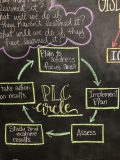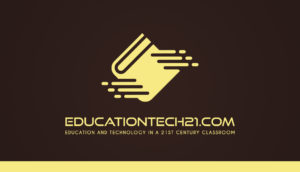
As an educator of 30+ years, I have found that there are certain tips and techniques that most effective teachers have in common. Educators who do most of the things in this list tend to reach more students, have better results on standardized tests, have better knowledge retention among former students and tend to be those teachers that former students rate as most effective. While the list is not comprehensive and is not a “cure all” for first-time teachers, it is an effective starting place in seeking to better educate today’s students. Many of the tips here also apply to adult education, continuing education, and business and corporate training. Lets take a look at ten tips (in no particular order) used by effective educators.
1. Lesson planning and progression is based on student learning.
Effective teachers base progress on student learning, not on the time used to cover material. Effective teachers are constantly assessing students to see if they have mastered a topic and will continue only when the majority have demonstrated proficiency in current topics. Even when most students show this proficiency, the effective teacher will look for ways to assist struggling learners to bring them back up to level with other students.
2. Lessons are concise and based on what students need to know.
Great lessons are concise and emphasize only those things that teachers have determined that students need to know by carefully looking at standards and planning lessons to coincide with the important ones. Teachers realize that many standards support the “big ideas” and plan lessons with this in mind. Lessons and activities are planned to support these “big ideas” and parts that don’t do this are eliminated or de-emphasized. Lessons are never planned around materials but materials and activities are chosen based on the precise topic to be learned.
3. Students are frequently assessed to determine the level of mastery.
Teachers with an effective lesson planning cycle frequently check students for understanding instead of waiting until the end of a lesson or unit. This assessment is generally short and may be written or oral. It could even be observation of an individual or small group activity or collaboration. This sometimes takes the form of an exit ticket, a short quiz, a few written sentences, targeted questioning or a demonstration of a skill but what it must do is show individual mastery (or lack thereof) for each student individually.
4. Intervention happens quickly and frequently.
Good planning involves a plan for what to do when assessment shows that students have or have not learned the target of the lesson. The most effective teachers intervene in a timely fashion before students get behind. Many times, intervention may be as simple as a quick redirect in class or a quick reteach for an individual student. Sometimes assessment shows that a large portion of the class did not get the lesson and the entire class must be re-taught. Some students may require targeted intervention outside of class time. No matter what type of intervention is used, effective teachers make sure it is timely, targeted and in response to assessment.
5. Data determines the next steps.
Whether it is intervention and enhancement or a determination to continue to a new learning target, everything is guided by data. Data is misunderstood! Data used on a daily basis is simple, not complex. Most frequently, this data is the result of assessment and this assessment is simple. It is used to compare with other teachers to determine better ways to deliver a lesson and most importantly it is used to determine the steps in the learning process. The data may show that the class as a whole gets a concept and can move on or that re-teaching is needed. It also determines the amount and level of intervention. Careful design of assessments will lead to better data which in turn will lead to better and more effective use of the data.
6. Build a culture of discovery with students.
Effective teachers encourage students to discover answers through research, through experimentation, through trial and error, and through collaboration. Teacher questioning is open-ended and broad and leads to student discussion. The teacher moderates discussion and interjects with missing information or redirection. Effective teachers wait for responses and give students a chance to formulate answers in their own minds and from each of their individual perspectives. Factual information is introduced into the conversation and is used to further the discussion.
7. Teachers build a culture of collaboration and cooperation.
Great teachers don’t just meet, they collaborate. Meetings become a time when teachers meet to collaborate with each other about how students are progressing. They examine data from pre-determined assessments to decide the next steps in instruction. They plan upcoming instruction based on the assessment data and plan how new learning will be evaluated. They discuss specific interventions for specific students. Teachers learn to share ideas, share students and listen to each other in a collaborative culture.
8. Grading is based on mastery.
We live in a grades-based society. Students are ranked by grades, colleges evaluate student grades for admission, and students are held accountable for grades. That makes it important that grades are tied to mastery of standards. Student grades should not be determined during the formative stage when teachers are assessing students to learn the level of mastery. Does it really matter if a student understands a concept in ten minutes or 60 minutes? The point is for the student to master the concept so a student’s grade should reflect this mastery, not how long it took to get there.
9. Technology is used to support learning.
Technology should never be used just because it is available. Technology should support learning and be used for lesson delivery, research, collaboration, differentiation, document sharing, video, and other things when appropriate and only when it supports the current learning target. Technology should never replace teacher observation, interaction and assessment of students for mastery. Teachers should carefully correlate their use of technology and its effectiveness with the current learning objective.
10. Student learning target clarity is always maintained.
Research shows that students are far more likely to learn something if that know exactly what it is they are expected to know or demonstrate. Effective teachers always communicate in student-friendly terms what they expect students to get from a lesson. This is often done in the form of a guiding question that will stimulate student thought and lead to the student formulating an answer from his or her own perspective. These questions are generally posted by the teacher in the classroom and referred to during the lesson.

